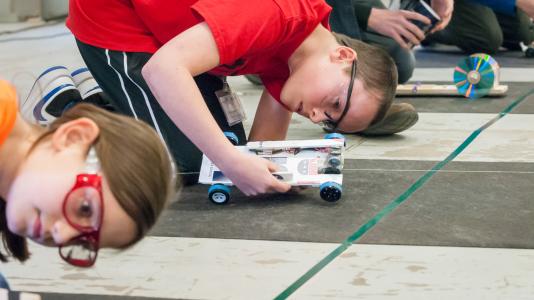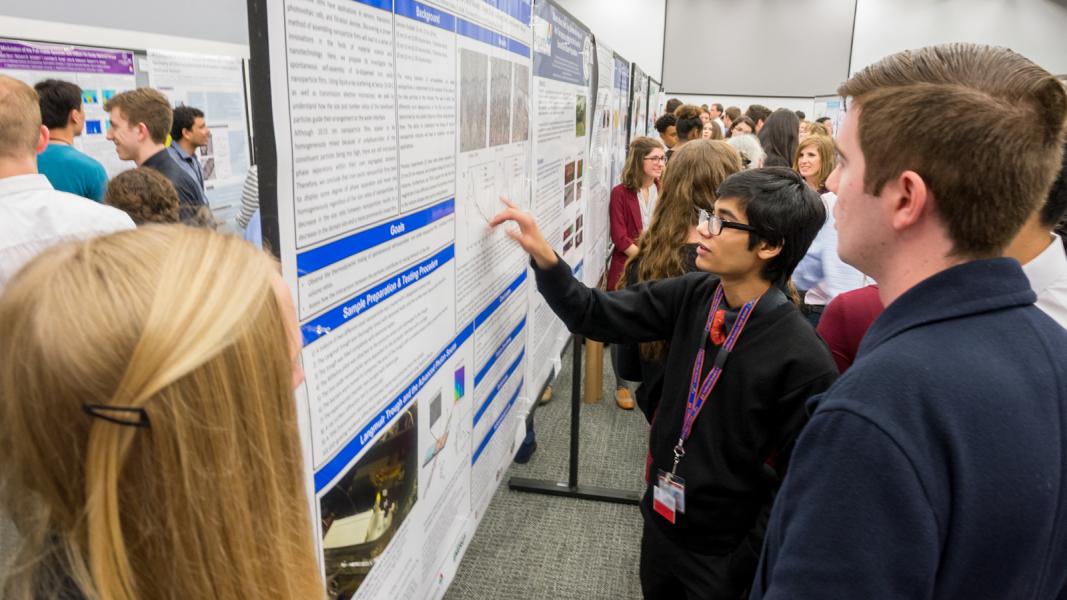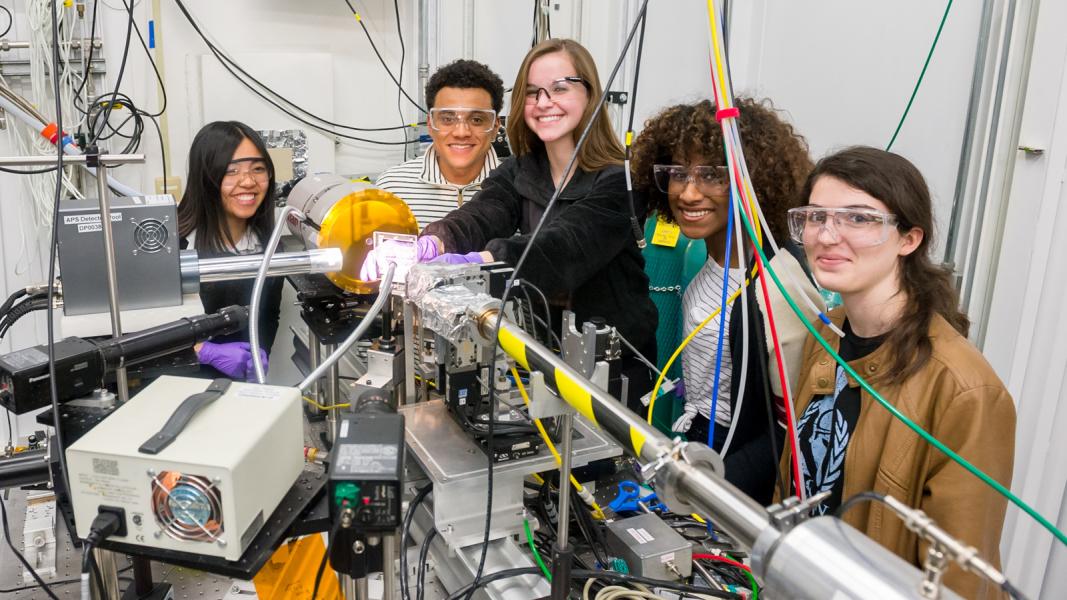
Before participating in the Electric Car Competition, T.J. Cosler, an 8th grader at Jerling Jr. High, never really had a chance to explore his interest in electronics outside of class.
But getting involved at Argonne gave him a richer understanding of gear ratios—as well as the role of teamwork in the life of an engineer.
“Working with people and incorporating other people’s ideas is important, especially with engineering, which is what I’ve always been interested in,” Cosler said.
Argonne’s educational programs offer what most classrooms can’t— authentic research experiences, interactive approaches to learning science, technology, engineering, and math, and one-on-one contact with some of the brightest minds in the nation. Students have access to all of these through opportunities from middle school competitions to college internship programs.
At the high school level, students can actually develop their own research questions and seek answers with the help and guidance of teachers and Argonne scientists.
The highly acclaimed Exemplary Student Research Program gave Miraj Shah and Dillon Vadgama, students from nearby Hoffman Estates High School, their chance to do nanoparticle research using the Advanced Photon Source, a giant synchrotron on Argonne’s campus.
“Many scientists, when they’re older and are no longer eligible for this program, they fight for a spot on the beamline, so for a high school student to have that kind of access is really a great opportunity, because through this program you can create some research that actually can change things,” Vadgama said.
Vadgama and Shah, who are both interested in pursuing engineering careers, agree that the most valuable part of their research experience was applying their classroom work in a real-world setting.
“It was cool to realize just how little I knew about different fields and the real-life applications of the stuff that we learn in school,” Shah said.
College-level studies also open up new opportunities for older students to work more closely with Argonne scientists and fine-tune their research skills.
One of the most popular internship programs is the U.S. Department of Energy’s Science Undergraduate Laboratory Internship program, which Holly Dinkel, a chemical engineering major at the University of Missouri, Columbia, joined in the spring of 2016. Through the internship, Dinkel studies the development and application of medial isotopes using accelerator technology.
Having done three internships prior to her arrival at Argonne, Dinkel said her experience here stands out because it has helped her to mature more as a researcher.
“Just the fact that I can collaborate with my mentors and am invited to express my concerns with different procedural steps in an investigation is helping me to develop a sense of personal accountability for the science I am doing, and to develop some maturity in experimental design,” Dinkel said.
“You have to be in a lab and actively doing research in order to develop those kinds of skills—it’s not just something you can learn in a classroom,” she said.
Meridith Bruozas, manager of Argonne’s educational programs and outreach, says efforts to engage students at all different levels helps support the science, technology, engineering, and math career pipeline and ensure that the students who emerge from it have the skills they need to take on global challenges. “We want to continue building on Argonne’s legacy of discovery and innovation for generations to come, and show students that they can be a part of that legacy in a very meaningful and exciting way,” she said.
The Science Undergraduate Laboratory Internship Program is sponsored by the Department of Energy Office of Science’s Office of Workforce Development for Teachers and Scientists. The Exemplary Student Research Program is supported by resources at Argonne’s Advanced Photon Source, a Department of Energy Office of Science User Facility. The Middle School Electric Car Competition is done in partnership with Case New Holland.
For more information about education at Argonne, visit www.anl.gov/educational-programs.
Argonne National Laboratory seeks solutions to pressing national problems in science and technology. The nation’s first national laboratory, Argonne conducts leading-edge basic and applied scientific research in virtually every scientific discipline. Argonne researchers work closely with researchers from hundreds of companies, universities, and federal, state and municipal agencies to help them solve their specific problems, advance America’s scientific leadership and prepare the nation for a better future. With employees from more than 60 nations, Argonne is managed by UChicago Argonne, LLC for the U.S. Department of Energy’s Office of Science.
The U.S. Department of Energy’s Office of Science is the single largest supporter of basic research in the physical sciences in the United States and is working to address some of the most pressing challenges of our time. For more information, visit the Office of Science website.
Electric Car Competition

